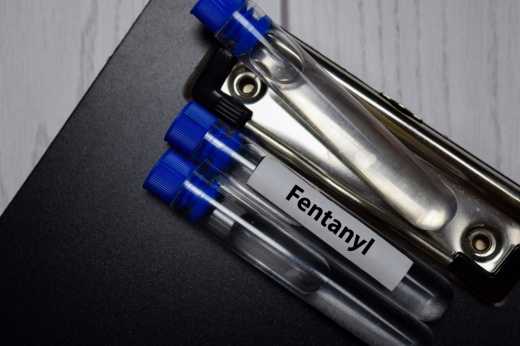The House overwhelmingly passed House Bill 362 on April 11 with a 143-2 vote, and similar proposals are pending in the Senate Criminal Justice Committee, backed by a bipartisan group of senators.
“The majority of these folks succumbing to fentanyl overdoses do not realize that they’re taking fentanyl,” said Rep. Tom Oliverson, R-Cypress, the author of the House bill. “It only makes sense that we give them the opportunity to be forewarned.”
About 2,500 Texans died from opioid overdoses in 2021. Fentanyl-related deaths have increased by more than 500% since 2019, according to Texas Health and Human Services.
Fentanyl is often mixed with other drugs to greatly increase their potency, according to the Centers for Disease Control and Prevention. With a tainted drug supply, drug users are at risk of overdosing on relatively low quantities of a drug that is up to 50 times more potent than heroin.
Test strips can be used to detect fentanyl when the contents of a drug are uncertain.
Manufacturing and possessing fentanyl test strips is prohibited by Texas paraphernalia law. Manufacturing test strips is punishable with up to $4,000 in fines or a year of jail time, and possession entails fines up to $500.
The House bill proposes an exception to Texas paraphernalia law for fentanyl test strips.
Oliverson cited the dramatic rise of fentanyl deaths, tainted drug supply and sheer potency of fentanyl as reasons to legalize test strips.
“If I took a half a teaspoon of fentanyl and added it to a cup of coffee, I’ve just created an entire cup of morphine, which is probably enough to kill everyone on the dais. So, the mere presence of this chemical in a drug—and you don’t know it’s there—is enough to kill you,” Oliverson said.
The bills legalizing fentanyl test strips are just one component of the state government’s response to fentanyl. Other bills aiming to target the overdose epidemic seek to increase penalties for fentanyl possession, create education programs in schools and increase public sources of naloxone, a drug that reverses opioid overdoses. These include:
- Senate Bill 645: would increase the minimum charges for fentanyl possession
- HB 3908: advocate for more education programs
- HB 2411: provide naloxone for public school campuses
- HB 4801: would address how money in the state's opioid abatement account could be used and advocates for buying naloxone in bulk




